第9章
There are those who can sympathise with the gallant old Scotch officer mentioned by some writer on sea-weeds, who, desperately wounded in the breach at Badajos, and a sharer in all the toils and triumphs of the Peninsular war, could in his old age show a rare sea- weed with as much triumph as his well-earned medals, and talk over a tiny spore-capsule with as much zest as the records of sieges and battles. Why not? That temper which made him a good soldier may very well have made him a good naturalist also. The late illustrious geologist, Sir Roderick Murchison, was also an old Peninsular officer. I doubt not that with him, too, the experiences of war may have helped to fit him for the studies of peace. Certainly, the best naturalist, as far as logical acumen, as well as earnest research, is concerned, whom England has ever seen, was the Devonshire squire, Colonel George Montagu, of whom the late E. Forbes well says, that "had he been educated a physiologist" (and not, as he was, a soldier and a sportsman), "and made the study of Nature his aim and not his amusement, his would have been one of the greatest names in the whole range of British science." I question, nevertheless, whether he would not have lost more than he would have gained by a different training. It might have made him a more learned systematizer; but would it have quickened in him that "seeing" eye of the true soldier and sportsman, which makes Montagu's descriptions indelible word- pictures, instinct with life and truth? "There is no question," says E. Forbes, after bewailing the vagueness of most naturalists, "about the identity of any animal Montagu described. . . . He was a forward-looking philosopher; he spoke of every creature as if one exceeding like it, yet different from it, would be washed up by the waves next tide. Consequently his descriptions are permanent." Scientific men will recognize in this the highest praise which can be bestowed,because it attributes to him the highest faculty - The Art of Seeing; but the study and the book would not have given that. It is God's gift wheresoever educated: but its true school- room is the camp and the ocean, the prairie and the forest; active, self-helping life, which can grapple with Nature herself: not merely with printed-books about her. Let no one think that this same Natural History is a pursuit fitted only for effeminate or pedantic men. I should say, rather, that the qualifications required for a perfect naturalist are as many and as lofty as were required, by old chivalrous writers, for the perfect knight-errant of the Middle Ages: for (to sketch an ideal, of which I am happy to say our race now affords many a fair realization) our perfect naturalist should be strong in body; able to haul a dredge, climb a rock, turn a boulder, walk all day, uncertain where he shall eat or rest; ready to face sun and rain, wind and frost, and to eat or drink thankfully anything, however coarse or meagre; he should know how to swim for his life, to pull an oar, sail a boat, and ride the first horse which comes to hand; and, finally, he should be a thoroughly good shot, and a skilful fisherman; and, if he go far abroad, be able on occasion to fight for his life.
For his moral character, he must, like a knight of old, be first of all gentle and courteous, ready and able to ingratiate himself with the poor, the ignorant, and the savage; not only because foreign travel will be often otherwise impossible, but because he knows how much invaluable local information can be only obtained from fishermen, miners, hunters, and tillers of the soil. Next, he should be brave and enterprising, and withal patient and undaunted; not merely in travel, but in investigation; knowing (as Lord Bacon might have put it) that the kingdom of Nature, like the kingdom of heaven, must be taken by violence, and that only to those who knock long and earnestly does the great mother open the doors of her sanctuary. He must be of a reverent turn of mind also; not rashly discrediting any reports, however vague and fragmentary; giving man credit always for some germ of truth, and giving Nature credit for an inexhaustible fertility and variety, which will keep him his life long always reverent, yet never superstitious; wondering at the commonest, but not surprised by the most strange; free from the idols of size andsensuous loveliness; able to see grandeur in the minutest objects, beauty, in the most ungainly; estimating each thing not carnally, as the vulgar do, by its size or its pleasantness to the senses, but spiritually, by the amount of Divine thought revealed to Man therein; holding every phenomenon worth the noting down; believing that every pebble holds a treasure, every bud a revelation; making it a point of conscience to pass over nothing through laziness or hastiness, lest the vision once offered and despised should be withdrawn; and looking at every object as if he were never to behold it again.
Moreover, he must keep himself free from all those perturbations of mind which not only weaken energy, but darken and confuse the inductive faculty; from haste and laziness, from melancholy, testiness, pride, and all the passions which make men see only what they wish to see. Of solemn and scrupulous reverence for truth; of the habit of mind which regards each fact and discovery, not as our own possession, but as the possession of its Creator, independent of us, our tastes, our needs, or our vain-glory, I hardly need to speak; for it is the very essence of a nature's faculty - the very tenure of his existence: and without truthfulness science would be as impossible now as chivalry would have been of old.